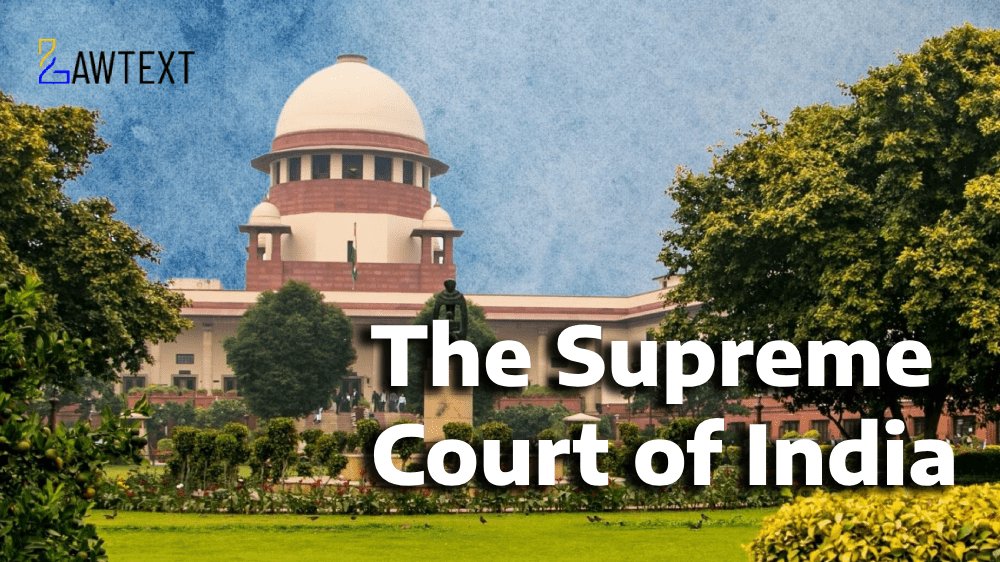CASE NOTE & SUMMARY
Introduction & Context
Para 1-2:
- The appeal arose from the Telangana High Court's Division Bench decision, which upheld a Single Judge’s dismissal of the Appellant’s writ petition challenging his retirement at age 60 and appointment of Respondent No.4 in his place.
Appointment & Service Details
Para 3-4:
- The Appellant joined Jawaharlal Nehru Technological (JNT) University in 1985 as a Lecturer and became a Reader in 1995.
- He was later appointed as Director of the CSI Institute of Technology (CSIIT) in 1998. At the time, the superannuation age was 60 as per AICTE/UGC regulations.
- In 2010, AICTE/UGC revised the retirement age for teachers in technical institutions to 65.
Representation & Litigation History
Para 5:
- Upon his retirement in August 2018, the Appellant sought to extend his tenure to 65 years. His representation was rejected, and subsequent writ petitions were dismissed by the Telangana High Court.
Arguments by the Parties
Para 6-7:
- Appellant:
- Claimed entitlement to the revised retirement age of 65 as per AICTE/UGC regulations.
- Cited judgments asserting that UGC regulations are binding and not recommendatory.
- Respondents:
- CSIIT, a private unaided minority institution, is governed by State laws and not bound by AICTE/UGC regulations unless adopted by the State.
- Telangana Government had not adopted the revised superannuation age of 65.
Analysis & Findings
Para 8-10:
- The Court emphasized that CSIIT, affiliated with JNT University, follows the State-mandated superannuation age of 60.
- Appellant failed to establish himself as a "teacher" under AICTE/UGC regulations. He held an administrative role as Director, which does not qualify for extended retirement benefits.
- The Appellant’s acceptance of retiral benefits further validated his acknowledgment of the retirement age.
Judgment & Conclusion
Para 11-14:
- Distinguished precedents cited by the Appellant as factually inapplicable.
- Affirmed the High Court’s decision, holding that the Appellant was not entitled to continue beyond 60 years.
Acts & Sections Discussed:
- AICTE Regulations (2010): Enhancement of superannuation age for teachers to 65.
- UGC Regulations (2010): Similar amendment extending retirement age for teachers.
- G.O.Ms.No.40 (2012): Telangana State Government’s decision not to adopt the revised AICTE/UGC regulations.
Ratio Decidendi:
- AICTE/UGC regulations are not automatically binding on private minority institutions unless adopted by the State Government or the institution itself.
- The term "teacher" under AICTE/UGC regulations applies only to individuals engaged in teaching duties, excluding administrative roles like that of a Director.
Subjects:
Service Law – Retirement Age – Applicability of Central Regulations to Private Minority Institutions.
Superannuation, Private Minority Institutions, AICTE Regulations, UGC Guidelines, Telangana State Government, Education Law, Administrative Role vs. Teaching Role, Retirement Benefits.
Citation: 2024 LawText (SC) (12) 62
Case Number: CIVIL APPEAL NO. OF 2024 (Arising out of SLP (C) No.8457 of 2022)
Date of Decision: 2024-12-06
Case Title: P.J. DHARMARAJ VERSUS CHURCH OF SOUTH INDIA & ORS.
Before Judge: (VIKRAM NATH J. , PRASANNA B.VARALE J.)
Appellant: P.J. DHARMARAJ
Respondent: CHURCH OF SOUTH INDIA & ORS.

